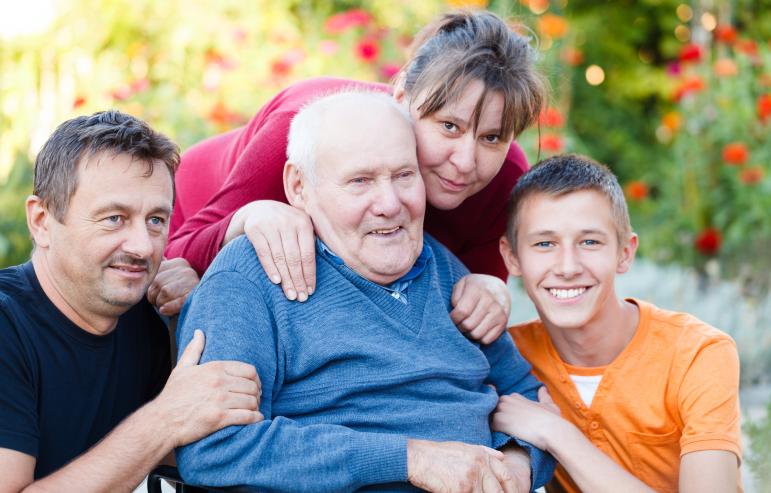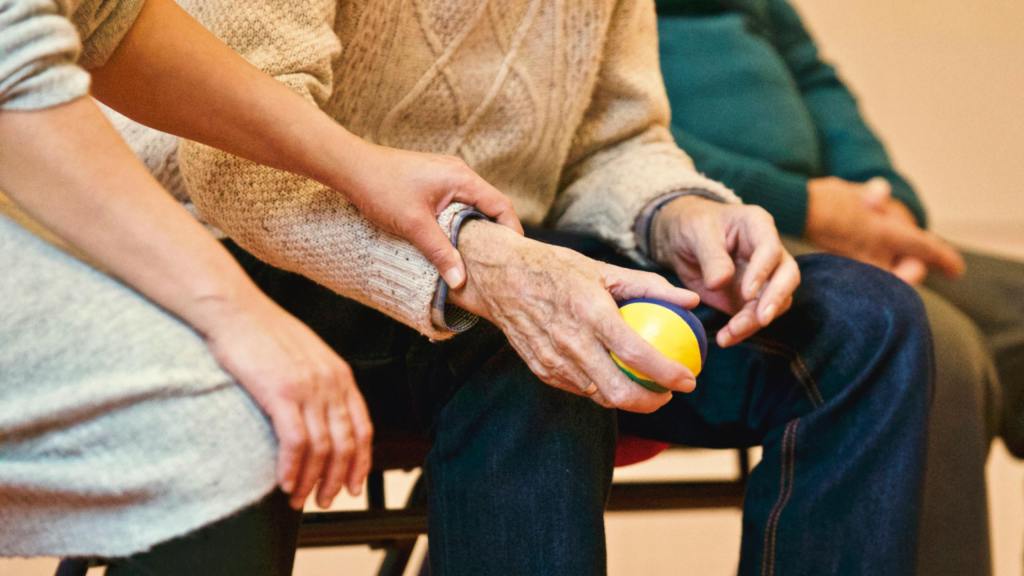
Holiday Caregiving for Loved Ones with Alzheimer’s and Dementia
- Keeping to their daily routine as much as possible.
- Consider whether traveling, especially long distances, is something that your loved one can tolerate. Can they negotiate a loud, busy, airport or train terminal? A busy airport might easily upset or frighten someone with cognitive impairment. Will they be able to go through security without becoming upset? Can they tolerate the time it will take you to get to your destination?
- When decorating your home consider whether your loved one might misinterpret or be frightened by flashing lights, items that make noise, or decorations that may get confused with real people or animals. Keep rooms well lit for safety.
- In planning a family gathering in your home or attending one elsewhere, it is a good idea to talk to your guests ahead of time about your loved one to help them feel comfortable and to set reasonable expectations.
- Consider how large a gathering will be and how long it should last. While tradition may have been that you fill your home with all 60 of your relatives, and all of their children for an all day or night event, this may be way too much for your loved one to manage. Consider scaling back in these areas, and provide opportunity for them to rest or have a quiet area.
- The time of day for an event is important to consider as well. If your loved one normally has increased behaviors later in the day, host your celebration as a brunch or luncheon rather than a dinner.
- Involve your loved one in the festivities in ways in which they can be successful and still feel part of the season. For example, if Mom used to do all the baking but is no longer able to manage these things, maybe she can help mix the ingredients, or roll out the dough, or frost the cake. Maybe your loved one can still help with setting the table, wrapping gifts (even if they are not done to perfection), or decorating the home. Alternately, looking at old photo albums may allow them to reminisce and share stories.
More insights like this:
-

Delirium vs. Dementia: Causes, Symptoms, Treatments, and Preventative Measures
Read more: Delirium vs. Dementia: Causes, Symptoms, Treatments, and Preventative Measures5 Key Things Family Caregivers Need to Know About Delirium and Dementia Onset and Course Are Key Clues That Caregivers Should Watch Closely Delirium develops suddenly (hours or days) and often fluctuates; dementia progresses gradually over months or years. Acute changes in thinking or attention should trigger urgent medical evaluation. Delirium and Dementia…
-

What Caregivers Should Know About Early-Onset Alzheimer’s
Read more: What Caregivers Should Know About Early-Onset Alzheimer’sSymptoms, Stigma, Diagnosis, and Treatment Early-onset Alzheimer’s disease, also known as younger-onset, is the development of Alzheimer’s symptoms between the ages of 30 and 65. A diagnosis is relatively rare at a younger age, and while over 6 million people in the United States are living with Alzheimer’s disease, the true prevalence of early-onset is uncertain.…
-

15 Tips on Transitioning a Loved One to Memory, Dementia, or Alzheimer’s Care
Read more: 15 Tips on Transitioning a Loved One to Memory, Dementia, or Alzheimer’s CareAs a part of your journey caring for someone with Alzheimer’s or another form of dementia, there may come a time when the effects of the disease become too much for a caregiver to handle, and one must seek alternative care options. When deciding the right time to transition your loved one to…